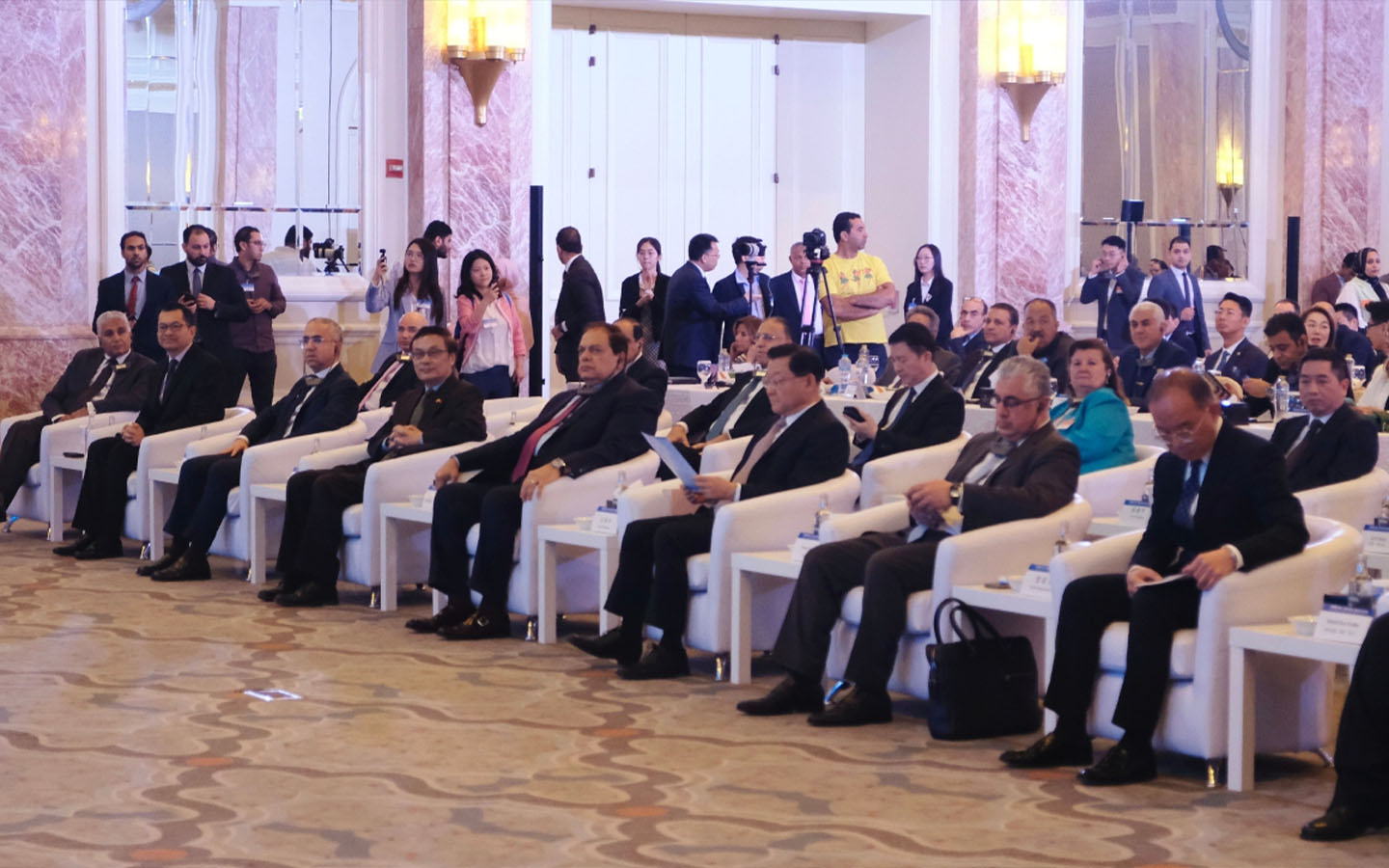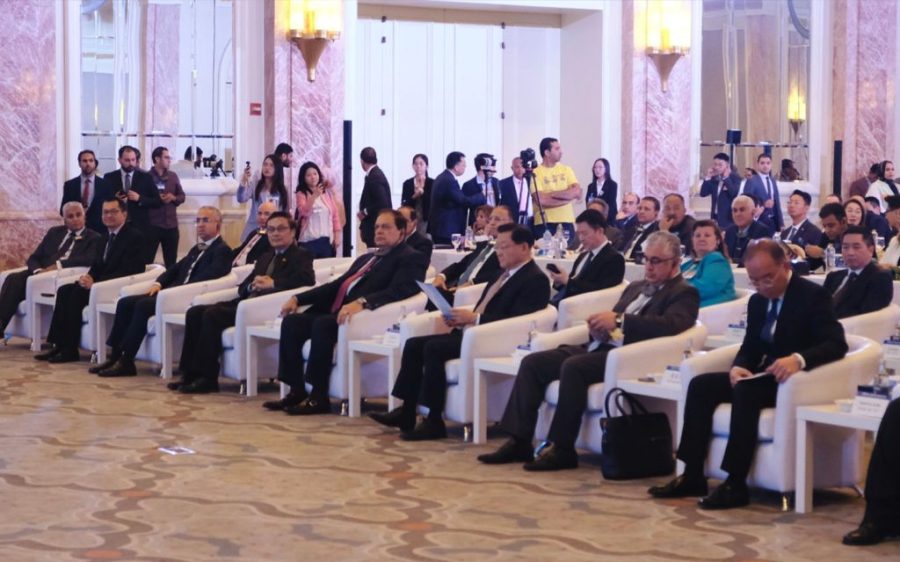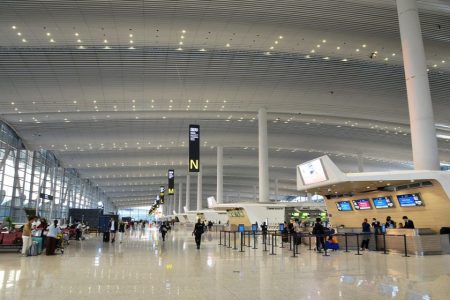The Macau International Airport Company has signed a memorandum of cooperation with a leading African airline. The SAR’s Commerce and Investment Promotion Institute (known by its Portuguese initials IPIM) has described the deal as “further strengthening Macao’s international air logistics connections.”
IPIM’s statement didn’t reveal the name of the African airline in its statement, but noted that the agreement was one of 30 inked between Greater Bay Area (GBA) and African enterprises at Monday’s Guangdong-Hong Kong-Macao Greater Bay Area—Africa (Egypt) Economic and Trade Co-operation Conference. Other agreements signed spanned sectors including home appliances, infrastructure and logistics.
Jointly organised by the provincial government of Guangdong, the Hong Kong government and the Macao government, the conference in Cairo drew more than 400 participants, including dignitaries, business leaders and trade representatives from the GBA, Egypt, Ethiopia and other African nations.
[See more: Dozens of agreements signed between the GBA and Europe in Hungary]
In a speech outlining investment advantages of the GBA to African attendees, IPIM president Vincent U emphasised Macao’s roles as a bridge between China and international markets as well as in facilitating economic and trade co-operation between the GBA and Africa – particularly for small and medium-sized enterprises.
Expanding Macao’s overseas influence is a major priority for the government, as Chief Executive Sam Hou Fai outlined in his 2025 Policy Address. Earlier this month, director of the State Council’s Hong Kong and Macao Affairs Office Xia Baolong urged the SAR’s business community to “vigorously expand [its] international business network” while broadcasting the “good stories of Hong Kong and Macao to the world”.
The conference in Egypt comes on the heels of trade delegations from Macao and the broader GBA visiting numerous European countries, Brazil and Vietnam. The push comes amidst turbulent trade relations between China and the US, which have spurred efforts by the central government to focus on fostering alternative markets.






